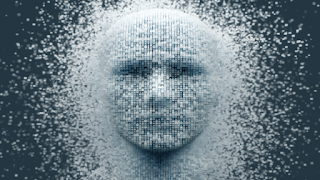Eric Schmidt, who spent two decades at the helm of the search giant, said during a CEO Council summit in The Wall Street Journal on Wednesday, May 20, that artificial intelligence does not currently pose a serious threat, but it could be abused by " bad guys" when it becomes more advanced.
And AI can help find software vulnerabilities or new biospecies. It's important to ensure these systems aren't "misused by the bad guys," notes the veteran CEO.
Schmidt, who recently chaired the US National Security Committee on Artificial Intelligence, is the latest in a group of former Google employees to have come out against the technology's rapid development in recent weeks.
Schmidt focused in particular on the increasing ability of artificial intelligence to identify vulnerabilities in software intended for hackers and the technology's inevitable hunting down new biological pathways, and could lead to the creation of frightening new biological weapons.
"There are scenarios not today, but reasonably soon, where these systems will be able to discover zero-day vulnerabilities in cyber problems, or discover new types of biology," Schmidt explained ahead of the Wall Street Journal's CEB summit in London.
So-called “zero-day vulnerabilities” are security flaws in code — anywhere from personal computing to digital banking to infrastructure — that have just been discovered, and therefore not yet patched by cybersecurity teams. And zero days are the prized tools in hackers' arsenal.
Schmidt did not go into detail about the "new species of biology", but warned that while these predictions may be "fanciful" today, his reasoning is likely to be correct. And when that happens, "we want to be ready to figure out how to make sure these things don't get misused by the bad guys."
Schmidt's comments, which are not his first warnings, join a tumultuous debate in Silicon Valley about ethical questions and the deadly dangers posed by artificial intelligence.
Elon Musk, Apple co-founder Steve Wozniak, and the late Stephen Hawking are among the most famous critics of artificial intelligence, who believe that it poses a "deep danger to society and humanity" and could have "catastrophic effects."
Here, on the other side of the debate, Bill Gates and others hail the technology as "the most important innovation of our time."
But among these tech giants, on both sides of the debate, only Schmidt helped create a massive 756-page report for the US government on the national security risks posed by artificial intelligence.
"America is not ready to defend or compete in the age of artificial intelligence. This is the hard reality we must face," Schmidt and his deputy on the US National Security Committee on Artificial Intelligence wrote in 2021.
"We will not be able to defend against AI-enabled threats without ubiquitous AI capabilities and new combat models," he added.
And during his final remarks in London this week, Schmidt told the assembled CEOs that he doesn't have any clear ideas about how AI should be regulated or even what it should be.
Meta : A leak reveals that “WhatsApp” is working on developing a huge update related to the privacy of its users
WABetaInfo reported that the “WhatsApp” application, owned by the “Meta” company, is developing a huge update that may allow users to send messages to others, without accessing their phone numbers.
And WhatsApp users will have the opportunity to add another feature that enhances privacy to their accounts, according to a blog published by WABetaInfo.
"Instead of relying solely on phone numbers to identify contacts, users will be able to choose a unique and easy-to-remember username," the blog states.
And WABetaInfo discovered the new feature in the latest WhatsApp beta for Android 2.23.11.15.
And the site said: "Although this feature is currently under development and is not yet visible to the public, we have a quick glimpse to share," along with a screenshot of the feature.
The screenshot shows a new option to add a unique username on the profile page within the app's settings.
However, additional details on how the feature will work remain unclear.
"As this feature is still under development, it is too early to understand how usernames work on WhatsApp," WABetaInfo explained.
The feature may allow users to communicate with companies privately, thus protecting their phone numbers, or its use may be more comprehensive, allowing private communication with any user.
The site added: "Only time will provide us with more answers, but we are confident that they will revolutionize the way we communicate on WhatsApp in the future."
While WhatsApp has yet to confirm the news, many excited users have already taken to Twitter to express their excitement over the rumors.
The news comes shortly after WhatsApp launched the Edit Messages button, which allows you to edit messages up to 15 minutes after they've been sent.



